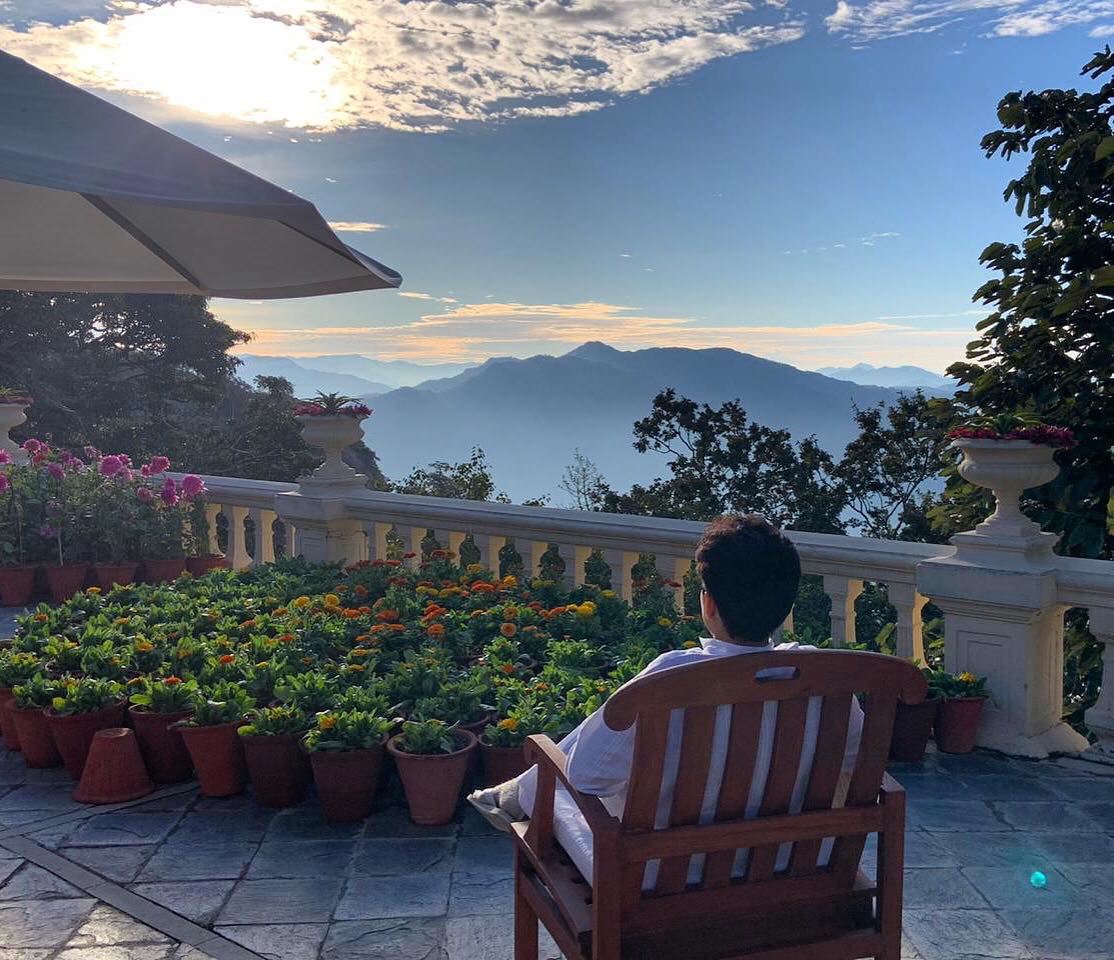Published in the Sunday Vijay Karnataka on 22 June 2025
He was so obsessive about how every little thing should be — his level of insistence was extreme. Stories about him are still told.
Eleven years ago, when Veena World first began, we started our journey by touring India. It was almost like our own “Bharat Jodo Yatra.” After that, we embarked on journeys around the world. We wanted to see the world through Veena World’s fresh perspective.
My first international tour was a 15-day East to West USA trip. Shilpa More, who is now the General Manager at Veena World, was also with me, and our tour manager was Dinesh Bandivadekar. Our days of working as tour managers were long over — and we didn’t need to either, since we had a growing team of tour managers who were even better than us. Over the last eleven years, we’ve traveled extensively ourselves to curate new tours and also traveled along with Veena World tours to observe from the perspective of tourists — to ensure flawless execution, no matter how well the tour is planned.
This year too, we’re travelling with a few Veena World groups. Now that we’re senior citizens ourselves, our outlook on tours has changed — and so Veena World is more “under observation” than ever.
Anyway, back to that USA tour. We started from New York. Our first sightseeing stop was the Statue of Liberty. The moment you stand there, it takes your breath away. We were all busy clicking photos of one another. I casually asked one lady, “So, how are you feeling?” and she suddenly began to cry. I was confused. I sat beside her and asked what had happened. She said, “A life-long dream has come true today. I saved money for this. I still can’t believe I’m standing in front of the Statue of Liberty. This is what the struggle was for.”
Those were tears of joy. Of completeness.
In my travel life, I worked as a tour manager for 15 years. I’ve also toured abroad as a tourist with other travel companies. In this constant world travel, I’ve heard this phrase — “This is what the struggle was for” — countless times with my ears, and seen it with my own eyes. Many times, I go into observation mode — while tourists are looking at a World Wonder they’d always dreamt of, I look at their faces filled with joy. I’ve seen tears well up in people’s eyes when they see Niagara Falls, the Eiffel Tower, or the Taj Mahal. When I first visited those places, I felt the same way.
The peace that descends upon you when you stand at a corner of the world is truly indescribable. Cape Comorin in India, Cape of Good Hope in Africa, Cape Leeuwin in Australia, Cape Horn in Chile (South America), Cape Sagres in Portugal, and the North Cape facing the Arctic... all these places — and many more yet to be seen — now beckon me even more strongly. Perhaps my next determined effort will be for those.
Is such persistence good or bad? Should one persist or not?
The abhang (devotional poem) by Saint Tukaram Maharaj, sung by Pandit Bhimsen Joshi —
“This is what the struggle was for; let the final day be sweet”
— brings with it a bliss like no other.
But still, in our homes or offices, we often ask, “Why are you being so stubborn about this?”
The word “struggle” or “insistence” can often sound negative — a synonym for obstinacy. For example, if parents force their unfulfilled dreams on their children without considering what the children want or are capable of, then that’s pure stubbornness. But if parents identify their children’s talents, nurture them, and support them — and if those children go on to succeed — then on that day, everyone can say together, “This is what the struggle was for.”
Same word — struggle.
But what a difference in emotion.
Of course, if children don’t know their path, then parents guiding them persistently is a constructive struggle.
In business too, we see this in a different light. A visionary leader sometimes has to use their veto power — because they can foresee the end result.
I’m reminded of Steve Jobs. He was so obsessive about how every little thing should be — his level of insistence was extreme. Stories about him are still told. But his very same persistence led to such creations that no one can beat Apple’s elegance, design, detailing, and precision even today. I would call Steve Jobs’ extreme obsession a constructive determination — often necessary and valuable.
After people, organizations, and societies — comes the country.
Even nations can go overboard with their stubbornness, which leads to global tension.
They say there are currently 35 small and large wars going on around the world — the result of someone’s destructive obsession.
While writing this, I stumbled upon one amusing kind of national insistence.
You might think my writing is erratic, jumping from one topic to another — but I’m not a professional writer bound by literary rules.
The other day, Milind Ballal from Thane Vaibhav called my writing “muktchintan” — free thought. I liked that word. So I let my writing flow like friendly conversations.
Anyway, back to my amusing observation — and yes, it’s still linked to the idea of persistence.
There’s one issue that troubles every Indian abroad:
Why don’t toilets in the USA, Canada, Australia, New Zealand, or England have jet sprays?
These are countries that constantly talk about hygiene and cleanliness — yet, in this aspect, they’re so backward!
They’ll speak at length about global warming and sustainability, yet ignore the massive ecological waste caused by toilet paper.
My ordinary mind just can’t digest this contradiction.
If you claim to be advanced, then use automatic bidets like in Japan.
Arab countries, Muslim nations, and India widely use jet sprays.
They’re clean, simple, and effective. Before jet sprays, people had to resort to funny alternatives — but now, they’ve solved everything.
Jet sprays have been in Indian homes for 30–35 years now.
But Western countries refuse to follow suit.
This, to me, is adamant refusal to adapt.
It seems these “all-knowing” countries hesitate to learn anything from the East.
Even today, newly constructed homes there do not have jet spray provisions.
Toilet paper — and their insistence on it — benefits them alone.
One thing is certain:
Whether constructive or destructive, positive or negative —
We must keep checking what kind of persistence we are choosing.


















































Post your Comment
Please let us know your thoughts on this story by leaving a comment.